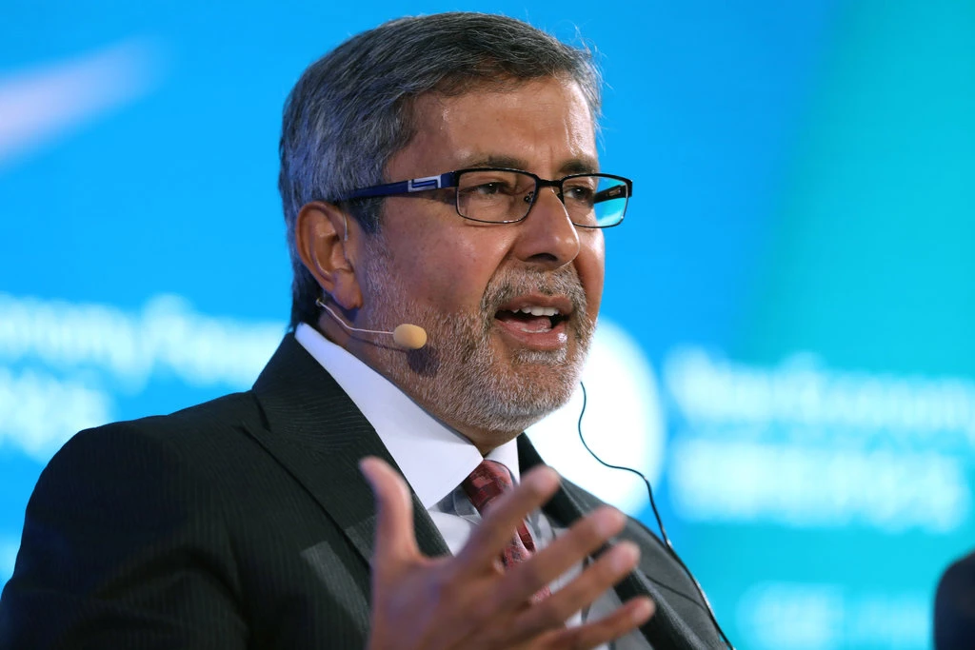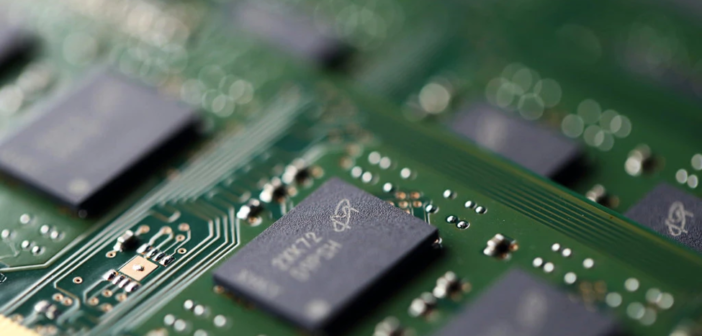By: Ian Brehaut, Contributing Writer
Among the many nations around the world, the U.S. was one of the first nations to start a trade deal with China. This January, President Trump took the time to sign a Chinese trade deal at a signing ceremony. At the ceremony was Sanjay Mehrotra, who is the current chief executive officer of Micron Technology. Micron Technology is based in Boise, Idaho, and is well-established in the U.S. for its semiconductor production, which produces memory cards for computers and smartphones.
Micron Technology is currently believed to be at the heart of the president’s trade war. The Trump administration is trying to find ways in which Micron would be able to maintain a competitive edge over China. A handful of U.S. innovations were copied and distributed throughout China, and Chinese companies had revoked trade with Micron. Many “unfair” practices are currently undermining the U.S. technology industry.

(Photo credit: Takaaki Iwabu/Bloomberg)
The Chief Executive Officer was blacklisted during the China trade deal fight. As a result, Micron is working with President Trump to get off the blacklist.
“To advance the Chinese government’s five-year economic plan, a company owned by the Chinese state allegedly stole Micron’s designs, valued at up to $8.7 billion,” said President Trump at his meeting a few months according to www.nytimes.com website.
Within the past couple of years, more U.S. companies will be affected as a result of these situations. The goal of the trade deal that President Trump signed, is to protect American companies from allowing non-U.S. companies to steal trade secrets and accuse those companies of theft. The trade deal will potentially help cover and resolve earlier cases that have been filed. Its benefits will allow President Trump to take an aggressive stance in accelerating the trade deal further.
Dr. Rimanelli, a political science professor at Saint Leo University, said “[people]always benefit on how the dollar does, because they are always able to flood the American market because if the dollar becomes more expensive, that improves Chinese production.”
More state-owned companies and industrial plants will be opening as a result of this trade deal, allowing for companies to afford growth and broaden the U.S. technology industry. With the help of President Trump, lucrative Chinese markets will be “barred” and “blocked” from investing in the U.S.
A major technology company in China, Huawei, has seen that more Chinese companies have been relying on products from Micron Technology. This would mean that President Trump’s deal would cause tariffs on goods to cost over $360 billion. Several major companies that Americans are familiar with are starting to fall as a result of the trade war.
President Trump believes that this issue will be unavoidable. He has taken an unconventional approach since he went against previous U.S. presidents’ opinions by taking an extra step forward and battling the growing threat of trade war with China and forcing them to sign a trade deal.
As of now, many companies are deciding to shift their efforts to foreign countries such as South Korea, Taiwan, and other countries in Asia. By 2025, China’s goal is to call for a $300 billion financial support from its top ten semiconductor companies.
“Dumping of a lot of their [Chinese] mass production at a cost below production levels, so they could flood the market and corner certain markets in America, and that is very negative,” was another issue that the American market faces, said Dr. Rimanelli.





